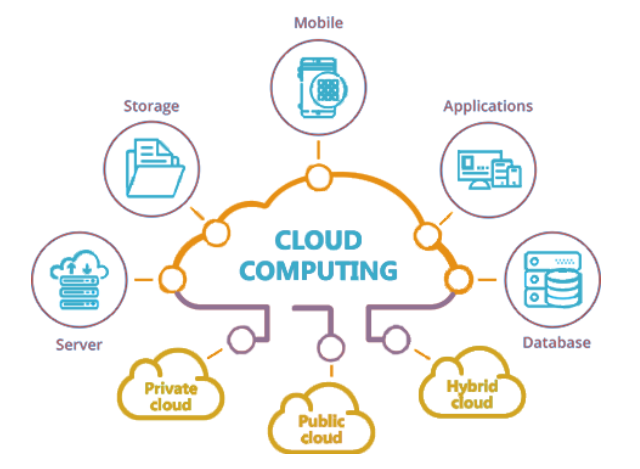Change Language
ESSENTIAL SKILLS FOR SOFTWARE DEVELOPERS IN THE AGE OF AI 🚀🤖✨
February 15, 2025 - 11

The world of software development is in constant flux, but one force is reshaping the landscape more dramatically than any other: Artificial Intelligence (AI). No longer a futuristic fantasy, AI is rapidly permeating every aspect of our lives, and software developers are at the forefront of this revolution. This means that the skills required to thrive in this new era are evolving, and developers who adapt will find themselves in high demand. 🌍💡

So, what are the essential skills software developers need to cultivate to stay ahead of the curve in the age of AI? Let's dive in. 🌟🚀
1. Foundational AI/ML Knowledge 🤖📚🎯

While you don't need a PhD in Machine Learning to contribute to AI-driven projects, a solid understanding of the fundamentals is crucial. This includes grasping core concepts like:
- Machine Learning (ML) Basics: 🏗️ Understanding different types of ML (supervised, unsupervised, reinforcement learning), common algorithms (linear regression, decision trees, neural networks), and the overall ML workflow.
- Data Structures and Algorithms: 🔢 These remain foundational, especially for optimizing AI models and handling large datasets.
- Mathematics: 📊 A grasp of linear algebra, calculus, and statistics is vital for comprehending how ML algorithms work under the hood.
2. Proficiency in Relevant Programming Languages 💻📝🔥

Some languages are more commonly used in AI development than others. Focus on mastering:
- Python: 🐍 The undisputed king of AI development, thanks to its rich ecosystem of libraries and frameworks.
- R: 📈 A powerful language for statistical computing and data analysis, often used in research and development.
- Java/C++: 🚀 Still relevant for performance-critical applications and integrating AI into existing systems.
3. Expertise in AI/ML Libraries and Frameworks 🔧📦⚡

These tools significantly accelerate development and provide pre-built functionalities:
- TensorFlow: 🔢 An open-source library for numerical computation and large-scale machine learning.
- PyTorch: 🔥 Another popular open-source ML framework known for its flexibility and ease of use.
- scikit-learn: 📊 A comprehensive library for various ML algorithms and tools.
- Keras: 🧠 A user-friendly API for building and training neural networks.
4. Data Handling and Preprocessing Skills 🗄️📊🛠️

AI thrives on data, and developers need to be adept at:
- Data Collection and Cleaning: 🧹 Gathering data from various sources and handling missing values, inconsistencies, and errors.
- Data Wrangling and Transformation: 🔄 Manipulating and transforming data into suitable formats for ML models.
- Database Management: 🗃️ Understanding SQL and NoSQL databases for storing and retrieving large datasets.
5. Cloud Computing Proficiency ☁️🚀🔗

Cloud platforms provide the infrastructure and services needed for large-scale AI deployments:
- AWS, Azure, GCP: 🌍 Familiarity with these cloud providers and their AI/ML services is highly valuable.
- Containerization (Docker, Kubernetes): 📦 Essential for deploying and managing AI applications in the cloud.
6. Problem-Solving and Critical Thinking 🧩💡🔍

AI development often involves complex challenges that require strong analytical and problem-solving skills:
- Algorithm Selection and Tuning: 🎯 Choosing the right algorithms and optimizing their parameters for optimal performance.
- Model Evaluation and Validation: ✅ Assessing the accuracy and reliability of AI models.
- Debugging and Troubleshooting: 🔍 Identifying and resolving issues in AI systems.
7. Continuous Learning and Adaptability 📖🚀🌎

The field of AI is constantly evolving, so developers must be committed to lifelong learning:
- Staying Updated: 📡 Following the latest research, trends, and best practices in AI.
- Experimenting with New Technologies: 🛠️ Exploring new tools, frameworks, and algorithms.
- Embracing Change: 🔄 Adapting to the rapidly changing demands of the AI landscape.
8. Beyond the Technical: Soft Skills Matter 🎤🤝💬

While technical skills are paramount, certain soft skills are equally important:
- Communication: 🗣️ Clearly communicating technical concepts to both technical and non-technical audiences.
- Collaboration: 🤝 Working effectively with cross-functional teams, including data scientists, engineers, and business stakeholders.
- Ethical Considerations: ⚖️ Understanding the ethical implications of AI and developing responsible AI solutions.
Conclusion ✨🚀🌟
The age of AI presents both challenges and opportunities for software developers. By focusing on developing these essential skills, developers can position themselves for success in this exciting new era and contribute to shaping the future of technology. Don't get left behind – embrace the change and become an AI-ready developer! 🔥💡🚀
Comments
Diolichat Blog
Welcome to our professional blog, your go-to resource for personal development, health and fitness, travel and adventure, technology insights, and lifestyle inspiration. Join us as we guide you on a transformative journey of growth and success. Stay updated with the latest health trends, discover tips for unforgettable travel experiences, explore the world of technology, and find inspiration for your lifestyle choices. Our blog delivers valuable insights and expert advice in a concise and professional manner. Get ready to elevate your life with our engaging content. Welcome aboard!
Popular Posts
-
 Exploring African Fashion: A Celebration of Diversity and Style
Exploring African Fashion: A Celebration of Diversity and Style
Lifestyle and Fashion